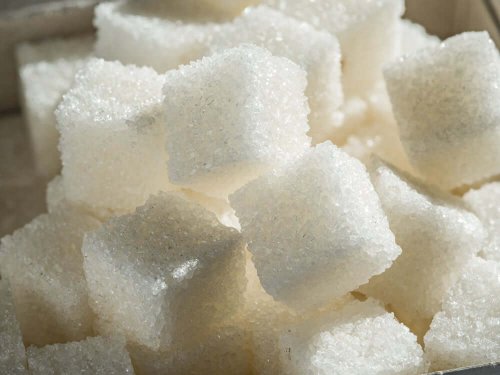High Uric Acid: 5 Common Causes

High uric acid in the blood is called hyperuricemia (University Hospital of Burgos). In order to maintain normal levels, you need to reduce your intake of certain foods, foods rich in purines. Excess uric acid is eliminated through urine or through the intestines. Otherwise, it can build up in the joints and form crystals.
High levels of uric acid can be bad for your health. It’s important to keep it at the right level or reduce it if it’s higher than it should be.
Causes of high uric acid
Gout tends to be more common in men than in women, according to the Mayo Clinic. People suffering from gout are usually middle-aged. It’s uncommon before the age of 30, and the risk increases with age.
One-third of the uric acid that exists in the human body comes from food and drink which is rich in purine. The other two-thirds are produced naturally by the body. Therefore, it’s important to know the causes of having too much of this acid.
1. Poor diet

2. Refined sugar
Eating a lot of food that’s rich in sugar, such as sweets, refined sugar, sweet pastries, sugary drinks, processed fruit juices or chocolates, can also cause this problem.
A study from the University of San Sebastian (Chile) found that foods that are very rich in sucrose and fructose can also increase your uric acid levels. That’s because they are closely related to the gene SLC2A9 (which codifies the glucose and fructose transporter GLUT9). Therefore, the best thing is to avoid them. Try to stick to a diet based on fruit and vegetables.
3. Alcohol intake

Also, you might like: 10 Immediate Effects of Alcohol on Your Health
4. Diuretic medication
These medications increase the production of urine to help control high blood pressure. However, with it, the kidneys eliminate more water, increasing the risk of high uric acid due to the inability of the kidneys to process it. That is according to a study from the 21st Century National Medical Center in Mexico City.
5. Obesity or being overweight

A study from the Mariana Grajales Coello Medical University (Cuba) found that weight influences the risk of developing gout, which is an illness that occurs when uric acid builds up and forms crystals in the joints. This is true because obesity, hypertension, and diabetes increase the production of uric acid in the body and make it more difficult to process and get rid of it.
Diet recommendations
If you have mild hyperuricemia then you can easily treat it with changes in your diet. For instance, foods that contain a lot of fibre can reduce the uric acid levels in the blood and encourage your intestines to absorb it better. This study from the University of Ljubljana confirms that fiber is key for fighting and preventing gout.
Foods that contain a lot of fiber:
- Oats
- Spinach
- Broccoli
Read also: 5 Healthy Spinach Recipes to Enjoy Every Day
Avoid foods such as:
- Trans fats.
- Sugar.
- Alcohol.
- Fat increases triglycerides, which are deposited into the arteries and can cause a heart attack.
- Pastries and baked goods have a high amount of saturated fats, so it’s best to avoid them.
Other advice
Keep yourself hydrated: It’s important to increase your liquid intake, above all, your water intake to encourage the elimination of uric acid through your urine. Findings from a study from the University of Navarra confirm the importance of hydration to prevent hyperuricemia.
- Avoid too much salt to avoid fluid retention.
- Stick to a diet based on fruit and vegetables.
- Reduce your consumption of red meat and sausages.
- Avoid alcohol.
- A study from the University of Almeria (Spain) found that regular exercise has a range of health benefits and helps you avoid joint problems.
- Try to maintain a healthy weight.
- Finally, add tea or plant infusions to your diet.
All cited sources were thoroughly reviewed by our team to ensure their quality, reliability, currency, and validity. The bibliography of this article was considered reliable and of academic or scientific accuracy.
- Harris, M. D., Siegel, L. B., & Alloway, J. A. (1999). Gout and hyperuricemia. American Family Physician. http://doi.org/10.1177/089719009901200406
- Villegas, R., Xiang, Y. B., Elasy, T., Xu, W. H., Cai, H., Cai, Q., … Shu, X. O. (2012). Purine-rich foods, protein intake, and the prevalence of hyperuricemia: The Shanghai Men’s Health Study. Nutrition, Metabolism and Cardiovascular Diseases. http://doi.org/10.1016/j.numecd.2010.07.012
- Bomback, A. S., Derebail, V. K., Shoham, D. A., Anderson, C. A., Steffen, L. M., Rosamond, W. D., & Kshirsagar, A. V. (2010). Sugar-sweetened soda consumption, hyperuricemia, and kidney disease. Kidney International. http://doi.org/10.1038/ki.2009.500
This text is provided for informational purposes only and does not replace consultation with a professional. If in doubt, consult your specialist.








